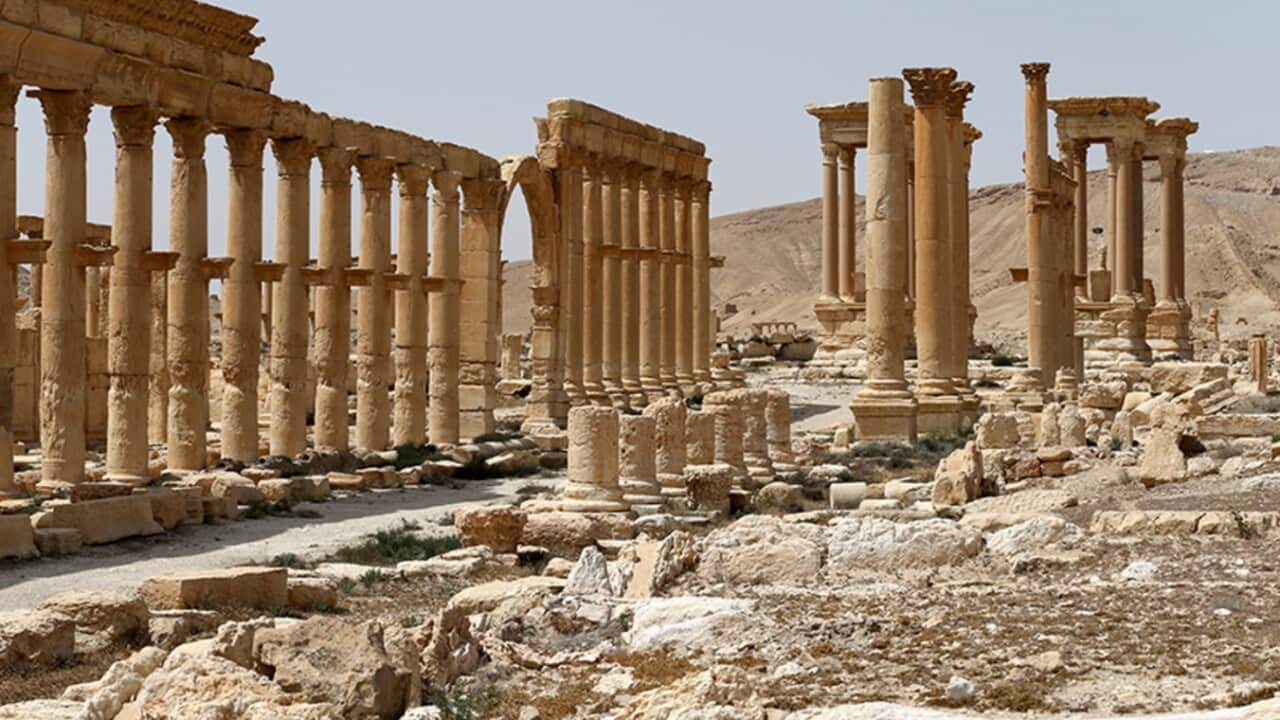Bolstered by air strikes and ground troops from their ally Moscow, Syrian forces battled through the desert for weeks to reach Palmyra.
The oasis city has traded hands several times during Syria's six-year civil war and become a symbol of IS's wanton destruction of priceless cultural heritage in areas under its control.
Russian Defence Minister Sergei Shoigu informed President Vladimir Putin of Palmyra's recapture, a Kremlin spokesman told news agencies in Moscow.
The Syrian Observatory for Human Rights, a British-based monitoring group, said the jihadists had totally withdrawn from the desert city but not before mining several areas.
"The Syrian army is still clearing neighbourhoods of mines and has not spread out into the whole city yet," said its director, Rami Abdel Rahman. An army statement carried on state news agency SANA said its forces had "regained control over Palmyra and surrounding territory after a series of successful military operations".
An army statement carried on state news agency SANA said its forces had "regained control over Palmyra and surrounding territory after a series of successful military operations".

Syrian regime fighters take position as they advance to retake the ancient city of Palmyra, from Islamic State (IS) group fighters on March 2, 2017. (Getty) Source: Getty
IS has suffered a string of setbacks since taking over swathes of territory in Iraq and Syria in 2014, and its two main strongholds of Mosul and Raqa both face assaults by forces backed by a US-led coalition.
The jihadists first seized Palmyra in May 2015 and began to systematically destroy and loot the UNESCO world heritage site's monuments and temples.
They were driven out in March 2016 but recaptured the city in December when the government was focused on seizing rebel-held east Aleppo.
Before IS first entered the city, Palmyra boasted temples, colonnaded alleys and elaborately decorated tombs that were among the best preserved classical monuments in the Middle East.
Related reading

Extent of Palmyra destruction revealed
But many of the structures have been destroyed and much of the heritage looted for sale on the black market.
Moscow's support has been key in the Syrian army's Palmyra push, and its warplanes continued to bombard IS positions inside and near the city on Thursday, the Observatory reported.
A decades-old ally of Damascus, Moscow launched an air campaign in September 2015 in support of President Bashar al-Assad's forces.
After losing ground in the early years of the war, Assad's regime has regained significant territory -- including by pushing rebel forces out of second city Aleppo last year -- thanks in large part to Russian support.
Turkey threatens US allies
On another battle front against IS, fighters of the US-backed Syrian Democratic Forces (SDF) announced they would cede several villages to the government as part of a deal brokered by Russia to avoid conflict with Turkey.
Turkey launched a cross-border operation in late August that it said aimed to counter both IS and the SDF, which is dominated by Kurdish fighters that Ankara sees as "terrorists".
The surprise announcement by the SDF marks the first time that US-supported fighters has offered to cede territory to Assad's forces.
Related reading

IS destroys Tetrapylon monument in Palmyra
It said the territory to be handed over lay between the towns of Manbij and Al-Bab, which Turkish-backed fighters captured last week from IS, to create a buffer zone between them.
Ankara meanwhile renewed its threat to bomb Kurdish fighters unless they withdrew from Manbij, a former bastion of IS that is now under SDF control.
The Turkey-backed rebels launched their advance on Manbij on Wednesday, initially seizing two villages but losing them to the SDF by Thursday.
The Observatory said clashes were ongoing southwest of Manbij late Thursday.
The profusion of forces operating in Syria has muddled the battlefield and on Wednesday a US general said Russian warplanes had bombed SDF fighters mistakenly believing they were IS.
The Russian defence ministry denied carrying out the air strikes.
Related reading
Syria regime, rebels committed war crimes in Aleppo: UN
Sputtering peace talks
Russia on Thursday accused Syria's main opposition group, the High Negotiations Committee (HNC), of "sabotaging" sputtering UN-led Syrian peace talks in Geneva and questioned their ability to reach a deal.
"The results of the first days of the intra-Syrian dialogues, as before, raise questions over the ability of the Syrian opposition representatives to reach a deal," Russian foreign ministry spokeswoman Maria Zakharova said.
Moscow had earlier called for "terrorism" to be added to the agenda of the talks, which have so far focused on three topics: governance, the constitution, and elections.
But the HNC late Wednesday refused, having previously accused Assad's regime of wanting to turn the focus to terrorism as a distraction from political questions.
"Progress in the Geneva round must not be held hostage by the Riyadh platform," lead Syrian negotiator Bashar al-Jaafari told reporters, referring to the Saudi-backed HNC.
The Geneva talks, the fourth round of UN-sponsored negotiations in the war, are expected to end by the weekend, though no formal timeframe has been set.
Related reading

Oscar elation from afar for Syria's White Helmets









